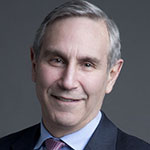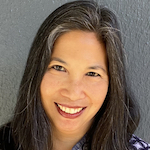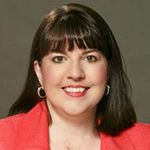 Richard Edelman |
There's a battle for truth, in which people no longer share common facts and are unable to have a rational debate, Richard Edelman said during his speech at USC Annenberg School of Communication and Journalism on April 12.
He said decisions are based on fears and emotions in the interests of short-term rather than societal gains.
As the media's traditional watchdog role over the powerful is weakened, nations become vulnerable to populism and volatility.
Edelman said globalization, impact of the Great Recession, fear of immigrants and the rise of automation have weakened trust in institutions over the past decade.
He believes we've entered the Age of Disinformation, the most insidious wave of all, to undermine the capacity to distinguish between truth and lie.
In the world of weakened media, communicators must recognize their role as principal, not agent. "Our aim is to supplement mainstream journalism, which should still be the primary means of objective fact-gathering and dissemination," said Edelman.
He believes every company should be its own media company. His firm practices "collaborative journalism," which is a news operation that speaks directly to end-users through corporate channels and social media.
Accuracy, transparency, open exchange and ethics training are keys to the success of a media operation. "We must provide factually rigorous, journalist-quality information. We should move from advocacy to education, to provide both sides of an issue," he said.
Since business emerged as the most-trusted institution in global governance in Edelman's 2018 Trust Barometer, it is expected to fill the void left by ineffectual government.
That creates even greater responsibility for the chief communications officer. "We are observing the move of CCO to a broader role as advocate for change, the Chief Change Officer, said Edelman.
He cited CCOs Sue Garrard (Unilever), David Kamenetsky (AB InBev) and Andy Pharoah (Mars) as examples of executives who have added functions such as sustainability, corporate strategy, and supply chain management to their oversight duties.
Edelman said they "are moving the function to evolving how business is done."
For their part, communications firms must evolve to bring ideas to clients that are consistent with the new aspirations of business.
"We should be the ones with the creative spark that starts movements, to bring purpose to each brand and to solve big problems in society," Edelman said.
His firm has hired 600 creatives, planners and paid media staffers and built an 800-person social media operation to make that happen.
"We are now competing directly with digital firms and ad agencies for budgets, believing that we have solutions that work in earned, owned and paid.
'In the end, there will be multiple options for clients who will make the choice," he said.
During this time of deep discontent, business is now in the best position to move society in a constructive direction.
But to earn this broader mandate, business must act in a new way, recognizing its responsibilities, operating in an accountable and transparent manner.
"This requires a more powerful role for the CCO as Chief Change Officer, to establish the context in which the enterprise can succeed.
"From counsel and conscience to actor and creator; from what we say to what we do, the CCO is the invaluable bridge to the future for the corporation," concluded Edelman.


 Helga Ying, who is in charge of International AIDS Society’s offices in San Francisco and Oakland, is moving to Edelman as global and US chair of Purpose.
Helga Ying, who is in charge of International AIDS Society’s offices in San Francisco and Oakland, is moving to Edelman as global and US chair of Purpose.  Emmanuel Tchividijian, who was senior VP/chief ethics officer at Ruder Finn in a 20-year stint, has established
Emmanuel Tchividijian, who was senior VP/chief ethics officer at Ruder Finn in a 20-year stint, has established  Every profession needs codes of conduct to help ensure the credible performance of its members. The public relations profession has several codes aimed at building and sustaining positive behavior but none of them addresses how practitioners must write for PR and related business purposes. (3 reader comments)
Every profession needs codes of conduct to help ensure the credible performance of its members. The public relations profession has several codes aimed at building and sustaining positive behavior but none of them addresses how practitioners must write for PR and related business purposes. (3 reader comments) Workplace diversity Issues, ranging from race to gender, have long been high profile threats to the brand. Ageism has been the exception - until now. (2 reader comments)
Workplace diversity Issues, ranging from race to gender, have long been high profile threats to the brand. Ageism has been the exception - until now. (2 reader comments) A Baylor University study found that Millennial PR practitioners were unlikely to speak up when an ethical concern arises, while senior PR pros rely on “rational approaches” when it comes to ethics problems. (2 reader comments)
A Baylor University study found that Millennial PR practitioners were unlikely to speak up when an ethical concern arises, while senior PR pros rely on “rational approaches” when it comes to ethics problems. (2 reader comments)


 Have a comment? Send it to
Have a comment? Send it to 
No comments have been submitted for this story yet.